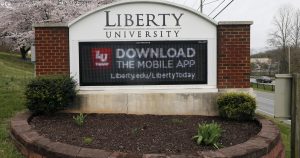For people, policy and Colorado politics
What’s The Spot? You’re reading an installment of our weekly politics newsletter. Sign up here to get it delivered straight in your inbox.
A long, long time ago, in early March, before coronavirus, I was thinking of pitching a story to my editor about how Colorado could, for the second general election in a row, have the longest ballot in the country.
Remember voting on 13 different ballot measures in 2018? As recently as a few weeks ago, it wasn’t hard to count to 13 for 2020, if you included the maybes.
We know three measures have qualified for November’s ballot: the reintroduction of gray wolves, the removal of Colorado from the National Popular Vote Interstate Compact, and a reiteration that only citizens may vote.
As for the rest of the possible measures: TBD. Coronavirus has changed everything on this front, as it has on so many others.
A partial list of topics I assumed we’d vote on in 2020, or that at least seemed like decent bets: abortion, transportation, income taxes, paid family and medical leave, nicotine taxes and a housing growth cap.
Statehouse reporter Saja Hindi had a good breakdown of this whole mess on the front of today’s Post. Read it here.
Saja’s also keeping track of the recessed state legislature, which tentatively plans to get back to work May 18. More on that below.
Also in this week’s Spot, federal politics reporter Justin Wingerter considers attack ads during a pandemic, and city reporter Conrad Swanson writes on a well-meaning but clumsy first try by the Denver City Council to continue its meetings with almost half its members on Zoom.
To support the important journalism we do, you can become a Denver Post subscriber here.
You can send tips, comments and questions to me at [email protected] or to the other Post reporters below.
Top Line

Hyoung Chang, The Denver Post
Colorado State Capitol building in Denver, Colorado on Friday. March 13, 2020.
The state’s budget writers are now planning for a shortfall that’s measured in billions rather than millions — taking the possibility of new spending off the table and threatening existing programs.
#COSen 2020 • By Justin Wingerter
Pandemic era attack ads
Is it wise, during a national emergency and global pandemic — when worried Americans are sheltering in their homes — to broadcast attack ads against political candidates? I asked that of several groups running ads.
“This campaign has always been about holding (Sen. Cory) Gardner accountable, and during a crisis it’s more important to hold him accountable than ever,” said Marie Aberger, spokesperson for Cut the Strings, an offshoot of the anti-Gardner group Rocky Mountain Values.
RMV launched two new digital ads this week — part of a six-figure digital ad buy — that show they’re unafraid to go negative. The ads, seen here and here, call Gardner a puppet of Senate Majority Leader Mitch McConnell and criticize donations he received from pharmaceuticals.
“Our message is going to continue to be that what our leaders say and what they do matters and we should be holding them more accountable, not less,” Aberger said.
The Lincoln Project, a PAC for disaffected Republicans, has departed from its usual, aggressive ways — it once called Gardner a small and impotent man, for instance. A new ad, called “Heroes,” highlights the hard work of everyday Americans, including Colorado health care worker Caroline Townsend.
“Different times call for different messages,” spokesperson Jennifer Horn says of the Lincoln Project’s messaging detour. “Our mission has not changed, but there is a time and a place for everything.”
“The time will come when it is appropriate to look honestly at how those in leadership did or didn’t lead. We will be there when that time comes,” she added.
Some ad buyers say that time will be in the fall, after the nation has clawed out of its malaise and begun considering who to vote for. John Weber, a spokesman for the Democratic National Committee, says Colorado is one of 14 battleground states the DNC will target this October with $22 million in YouTube ads. He has not said how much money will be spent in Colorado.
Bipartisanship!
The Colorado Republican Party and Colorado Democratic Party agreed Wednesday that so-called “faithless electors” weaken democracy and should be stopped.
The two parties filed separate amicus briefs in the U.S. Supreme Court case Colorado Dept. of State v. Michael Baca, et al. The case examines whether a Colorado law binding members of the Electoral College is constitutional, or if electors can vote however they choose.
“A state must have the power to bind its presidential electors to the will of its people, as most states have done for nearly two hundred years,” wrote an attorney for the Colorado GOP.
“For the political parties and the voting public across the country, the certainty and reliability of federal elections for president and vice president hinges upon presidential electors casting their votes in a manner consistent with their obligations,” wrote an attorney for Colorado Democrats.
It’s unknown when the Baca case will be heard. Oral arguments scheduled for April 28 have been indefinitely postponed due to the social distancing required by the coronavirus.
Transitions: Mitch Schwartz, who worked on the campaigns of Michael Bennet and Jason Crow — and mostly recently was Colorado communications director for Amy Klobuchar — is now a deputy press secretary and rapid response director for New York City Mayor Bill de Blasio.
More federal election news
Capitol Diary • By Saja Hindi
Thinking about governing remotely
When most people think about new Colorado laws getting created and passed, they think of the Capitol building in Denver — the space that fills with hundreds of people a day during the session, from lawmakers to lobbyists to citizens coming to testify about their issues.
It’s almost inconceivable that all of this work can be done remotely. But in a global pandemic, the rules change.
Colorado lawmakers are working with staff members to figure out what can be accomplished remotely if they can’t reconvene at the Capitol as planned in mid-May. Colorado’s General Assembly is one of many across the country undertaking this task. Even Congress is weighing options for how to govern from afar, according to the Associated Press.
State lawmakers cautioned Wednesday that despite the technology available, there’s no good solution for the whole body to meet and vote remotely. All 100 members can’t just hop on zoom and start giving speeches. Plus, how will the public be able to testify?
Senate Minority Leader Chris Holbert of Parker said Republicans are more open to smaller groups of lawmakers meeting remotely, as long as they aren’t taking public testimony. Such groups could include the legislature’s Joint Budget Committee and the executive leadership committee.
House Majority Leader Alec Garnett, D-Denver, said lawmakers are using the recess to explore options and see what’s feasible.
But when it comes to committee hearings and chamber floor work, things get more complicated.
Holbert told me this week that he doesn’t want members of the public to worry — the legislature doesn’t plan to do anything in secret that would prevent people from knowing what’s going on.
“Our boss, the public, has told us over the decades we’re not allowed to do that,” he said.
More Colorado political news
Mile High Politics • By Conrad Swanson
Baby steps for council members
Denver City Council’s first-ever partially remote meeting Monday, well, wasn’t pretty.
A quorum of seven council members physically attended the meeting, which was fortunate, because the other six attended digitally on Zoom and the technology quickly failed.
At times viewers either on Zoom or on the city’s Channel 8 could only hear some of the council members. Other times the council members couldn’t hear their colleagues.
For a while the Zoom channel rotated between council members Chris Hinds and Debbie Ortega, shifting to whichever member was unfortunate enough to squeak their chair or cough — just enough of a noise for the program to focus on their feed until another noise grabbed its attention.
A few council members joked about the fledgling technology, and they were able to pull together long enough to pass a consent agenda of uncontroversial items that didn’t require a public hearing. They adjourned and braced for next week.
After the fact, Councilwoman Candi CdeBaca didn’t mince words on Twitter.
“Well 1st Virtual City Council meeting was a fail… I literally have had town halls, conferences, keynotes, etc. streamed live from zoom… not sure why we didn’t all just log into zoom instead of half there (violating stay at home orders) and half home. Welp…”
Hinds tweeted out a picture of a man typing as his desk burst into flames, saying “Tonight’s first EVER Council meeting with virtual attendees be like.” He quickly followed up with “… but to be clear, I am truly excited to be part of history, and I look forward to ironing out the kinks and trying again. We can get this right. We have the technology.”
There will be more pressure to get it right next Monday because Mayor Michael Hancock has said his administration will bring several direct-file items to the council to add more individual quarantine rooms for those experiencing homelessness.
Council President Jolon Clark said he expects another direct file or two from the administration as well. He expressed confidence that the next meeting will go much smoother, though seven council members will still be in the room physically so the group can still vote on the off-chance technology fails again.
“Baby steps,” Clark said. “Baby steps.”
More Denver and suburban political news
Forward this newsletter to your colleagues and encourage them to subscribe.



















